Marijuana Supporters Spar Over Details Ahead of Missouri Legalization Vote Marijuana Is On the November Ballot in Missouri, But Division Among Proponents Could Threaten Passage
Published August 25th, 2022 at 6:00 AM
Above image credit: Donte Westmoreland was formerly incarcerated in Kansas on drug charges. He now is a cannabis entrepreneur. (Cody Boston | Flatland)On Aug. 9, Missourians learned that recreational marijuana legalization will appear on the November ballot.
Constitutional amendment 3 is a ballot initiative by Legal Missouri 2022. It promises to legalize marijuana usage by adults and expunge non-violent marijuana-related charges from criminal records.
While recent survey data shows 62% of Missourians support marijuana legalization, deciding the fate of cannabis policy isn’t quite so simple. Indeed, some supporters of recreational marijuana may be the greatest threat to passage of the ballot initiative.
Some organizations and Facebook groups, which advocate for legalization, say they will vote “no” on the proposal. Disagreements around social equity, taxation, decriminalization and regulation are dividing pro-legalization groups.
With legalization supporters battling each other, the fate of the Nov. 8 election seems volatile.
Legalization is a complex issue that touches more industries and individuals than just cannabis users, said Clark Wu, who specializes in cannabis at the Bianchi & Brandt law firm.
“It’s not a very straightforward issue,” Wu said. “There’s a lot of components to (legalization) that range from public policy concerns, costs, regulation, social justice – among a number of things.”
When drafting legalization policies, folks look to other states, industry leaders and advocacy groups to check each of the necessary boxes. But it’s also important to create a policy that reaches citizens and isn’t too polarizing if the end goal is to win the vote.
To explain the differing opinions on legalization policies and outline the Legal Missouri constitutional amendment, here is an issue-by-issue breakdown.
Flatland on YouTube: Missouri’s Marijuana Debate
Who Can Smoke?
A report on “Cannabis Consumers in America” by New Frontier Data showed that 35% of adults in the U.S. consume cannabis at least once a year.
John Payne, the campaign manager and spokesperson for Legal Missouri 2022, said the biggest reason for adult-use legalization measures is to curb the unregulated, illicit market.
“We want to have this be a legal, safe, regulated and taxed product, and that means having it go through the legal market,” Payne said.
Under Legal Missouri, adults 21 and older could consume and possess marijuana in quantities up to three ounces.
Folks of the same age could also register to grow up to six flowering plants at home if the ballot initiative passed.
It would remain illegal to sell to minors and to drive while under the influence. Possession in higher amounts could result in a fine or misdemeanor charge.
Some wonder if it’s truly legalized if some elements continue to be punishable.
In a virtual town hall discussion in January, Brennan England, the state representative for Minorities for Medical Marijuana, asked if this was mere “recriminalization” rather than decriminalization.
There is a fear among communities who have historically been targeted for marijuana usage, that if police have a leg to stand on with marijuana persecution, they will take it.
Legal Missouri also stipulates that local governments may enact ordinances around the time and place where marijuana may be smoked in public areas and the consumption of marijuana-infused products within designated areas.
Eapen Thampy, a lobbyist and cannabis advocate with Missouri Marijuana Legalization Movement, said these policies are a deterrent to some would-be supporters.
“(If) someone who’s legal to use and possess, why should we harass them for using cannabis?” Thampy asked. “You take that idea to anyone in the Black community here in Kansas City, or St. Louis and they’re outraged, because in their mind, that’s just another way for Black people to get harassed by law enforcement.”
According to Payne, New York is the only state that allows broad public consumption. As with tobacco and alcohol, Missourians want some control over where cannabis consumption can occur in public.
“This is something that the public generally wants there to be controls on public use, and we think that’s best left up to local government,” Payne said. “But we did decriminalize (public use).”
Expungement and Criminal Justice
A report from the ACLU found that over 600,000 marijuana-related arrests are made, nationally, each year. More than 80% of those charges were for mere possession.
It also found that in Missouri, Black folks were 2.6 times more likely to be arrested for marijuana possession than white folks. Some Missouri counties showed likelihoods of more than 10 times.
Considering the racial disparity and the vast number of people affected by marijuana prohibition and War on Drug era policies, an important part of legalization policy is ameliorating some of the harm done in the past.
While other states have included expungement in their legalization language, Legal Missouri is unique in its inclusion of automatic expungement for qualifying marijuana charges.
If approved by voters, the amendment takes effect 30 days later. At that point, the courts would be ordered to start expunging non-violent, marijuana possession charges of less than three pounds. This includes class E and D felonies.
Those with violent charges, or charges of more than three pounds, will have to finish out their sentences before being eligible for expungement. Charges for sale to a minor and driving while under the influence will not be eligible for expungement.
Opponents argue that it’s not actual legalization if some folks are still serving time. Thampy, who serves as the group moderator for the Missouri Marijuana Legalization Movement that boasts almost 64,000 members on Facebook, said the expungement policy is “problematic.”
“That’s really problematic to us, because we have the presumptively legalized, commercial possession and sale … whereas there are folks here in Missouri who are serving a sentence of incarceration, who legally should be let out,” Thampy said.
Additionally, Thampy noted that an automatic expungement process does not currently exist in Missouri and the logistics of coordinating such an undertaking with circuit courts would be difficult and costly.

Jackson County Prosecutor Jean Peters Baker said she likes the idea of automatic expungement, but sees it is difficult to execute because some marijuana charges are categorized as just “drug possession.”
“It’s going to be interesting to see how the system copes with that,” Baker said.
Baker has found that prosecuting and policing on marijuana possession charges is no longer effective, nor worthwhile. The last time her office tried to prosecute a possession case, it couldn’t even get a jury to sit.
“You have to look at what you’re doing, and look at (the) outcomes and see, ‘What else should I be asking these prosecutors to do with their time?’ ” Baker asked. “Because man, in the sixth most violent city in America, it shouldn’t be this.”
Data collected by Baker’s office show drug cases far surpassed any other types during the 2017-2020 period.
Prosecutorial Burden
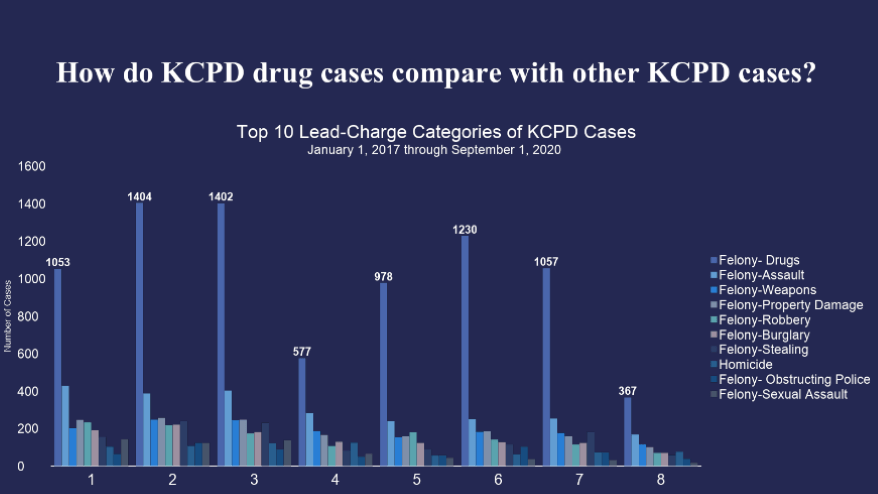
Legal Missouri calls for allocating part of the tax revenue generated by recreational marijuana sales to pay for the development and implementation of an automatic expungement process.
Payne pointed out that because it would be in the constitution, the courts would be ordered to figure out an expungement process.
Most states only allow expungement for misdemeanors and simple possession, which makes the Legal Missouri expungement policy unusually broad, according to Payne.
Typically, those seeking expungements have to apply, hire an attorney and go through a lengthy legal process for expungement.
“We’re going further than almost I think anyone has gone before,” Payne said.
As with other elements of the initiative, Payne said if lawmakers want to grant clemency to those other offenses, they have the ability and the right to do so.
“There’s a provision in all of our expungement language that says none of the expungements in here should be taken to mean that people don’t have rights to other expungements that are available to them at law,” Payne said.
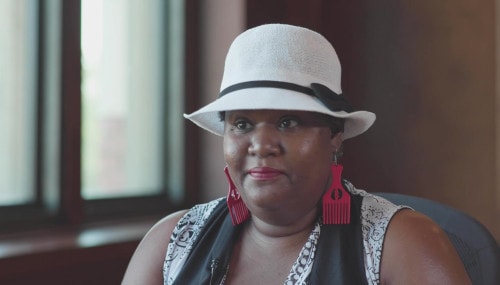
Justice Gatson, the founder of the Reale Justice Network, worked with Legal Missouri to promote the ballot initiative and collect signatures. The expungement element of the proposal is what got her excited about the measure.
“Automatic expungement to the degree that the burden of that is not on the person,” Gatson said. “The funds would come from the sale of marijuana to pay for this expungement.”
Gatson noted that a record with drug charges could impact a person’s ability to apply for housing, get a job, and even vote.
“The fact that people are incarcerated now while other people are making money is just hypocritical, on the face,” Gatson said. “Being able to release folks out of prison, or jail for use or sales was really important, and to have that record expunged.”
Gatson said marijuana issues have been important to her organization because people of color are, and historically have been, disproportionately criminalized for marijuana.
“I was really, really happy to see more of a criminal justice-led initiative with the adult-use initiative,” Gatson said.
Social Equity and Licensing
According to research from Bank of America Securities, the legal marijuana market in the U.S. was $25 billion in 2021. (New Frontier estimated the combined legal and illicit market was $97 billion last year.) The industry is only projected to swell as more states continue to legalize it.
While some have grown wealthy through the cannabis industry, those who have felt the harshest stings of its prohibition are asking for their piece of the pie.
Social equity programs have become an important element of legalization policies. The goal of these programs is to ensure that the communities who have been most affected by marijuana prohibition can have a stake in the legal market.
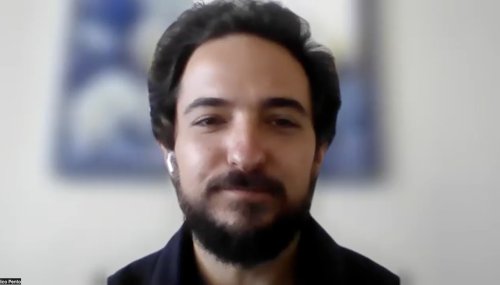
Nico Pento, a cannabis policy expert with Bianchi & Brandt, said he has yet to see a state find the “secret sauce” with an equity program.
“In my opinion, no state has gotten it exactly right,” Pento said. “Each one has done something, I think, that moves the needle forward. But … the social equity piece is arguably the largest issue facing the cannabis industry to date.”
Legal Missouri’s social equity portion of the proposal would create microbusiness licenses that are reserved for individuals fitting the following criteria:
- Net worth less than $250,000
- Disabled veterans
- Person who, or the spouse, parent or guardian of, someone who has been prosecuted, arrested or convicted of a non-violent marijuana related charge
- Reside in a zip code/census tract area where:
- 30% of population lives below federal poverty level
- Rate of unemployment is 50% higher than the state average rate of unemployment
- Historic rate of incarceration for marijuana-related offenses is 50% higher than the rate for the entire state
- Graduated from an unaccredited high school, or has lived in a zip-code containing an unaccredited high school for three of the past five years
The proposal also stipulates a minimum of 18 microbusiness licenses per congressional district after the first 548 days of the program’s implementation.
Microbusiness licensees could only sell or buy with other microbusinesses in the state, and entities cannot have more than one microbusiness license.
For Missouri and other states, Pento said the social equity program is about license holders, policy makers and regulators trying to strike the balance between “economic opportunity and keeping as free a market as possible.”
“Each state that legalizes, they learn from the next state and the next state and the next state,” Pento said. “What Missouri has decided with this ballot measure, having it as specific as it is, but also as broad as it is, is going to provide the opportunity for there to be actual, equitable distribution of these licenses.”
But opponents worry that these licenses won’t be equitable because they can only compete against themselves, or that larger entities will take the licenses from the intended folks.
Payne explained that the restrictions of microbusiness licenses are there to prevent folks from taking advantage of the system. The goal is to keep the businesses small so people can get into the industry, and eventually move up to larger scale operations under a comprehensive license.
“For all the people who win those licenses, it’s going to give them a real asset that they can build and later on down the road sell,” Payne said. “And that’s going to bring equity and wealth into these communities and for these individuals.”
All licenses, either microbusiness or comprehensive licenses under the Legal Missouri plan, would be awarded via lottery. The minimum number of comprehensive licenses awarded will be the same as the number of medical licenses issued.

However, Missouri operators with medical licenses could transition their licenses over to comprehensive licenses starting Dec. 8, 2022 if the ballot initiative passes.
Payne explained this would kick start the recreational program as soon as possible. It would also begin generating the tax revenue that would pay for other parts of the program.
“The simple fact is that if we want to make that market happen quickly, that’s the only way to do it,” Payne said.
Under a new license application process, establishing a business and starting to grow could mean a year and a half before any product is sold.
By including the existing medical marijuana industry, Payne expects legal adult-use sales as early as January 2023.
But some folks were upset with the way Missouri’s medical program played out. More than 2,000 people applied for licenses and the state only had 348 to give out, leaving many feeling excluded and questioning the integrity of the selection process.
Those same fears have carried over to Legal Missouri’s campaign, and are the primary point of most of the groups opposing the ballot initiative.
Many of these groups have circulated a flyer created by Crossing Paths Political Action Committee that says Legal Missouri, “creates a monopoly for medical marijuana businesses to enter the recreational market, which leads to a high price for consumers.”
Christina Thompson, founder of the ShowMe Canna-Freedom Facebook group, shared similar sentiments in a recent Facebook Live. She fears that marijuana under Legal Missouri would be expensive and inaccessible.
“Even though Legal MO 22 is adult-use, it absolutely will affect the medical side of things,” Thompson said in the live video to her over 1,000 followers.
Constitutional Amendment
The other major complaint against Legal Missouri is that it will be an amendment to the Missouri Constitution rather than a law put forth by the legislature.
Thampy argued that putting marijuana legalization and framework into the constitution makes it too difficult to adapt as the industry changes and grows.
As a lobbyist, Thampy advocated for the Cannabis Freedom Act (House Bill 2704), which stalled in the House of Representatives this spring. He argues a free market bill like the Cannabis Freedom Act would be better for Missourians in part because it could be adapted by legislators, whom the people hold accountable.
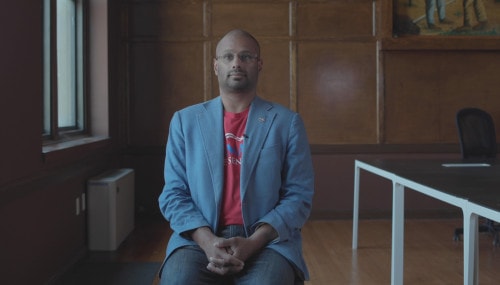
“After (a) ballot issue is passed, there is no accountability, there’s just a piece of text in the constitution,” Thampy said. “The state government has to implement it, and if something is broken and doesn’t work, or doesn’t fit with the way our state government is supposed to run constitutionally, then no one’s on the hook to fix it.”
Signature gathering is also expensive, and Thampy said a successful ballot initiative has to have important stakeholders involved. In the case of Legal Missouri, some of these stakeholders were out-of-state marijuana businesses. This leads opponents of the bill to believe licenses under Legal Missouri will favor these out-of-state entities.
The ballot initiative is essential to getting marijuana legalized in Missouri, at least in Payne’s opinion.
“The legislature is just never going to do it, that’s the honest truth,” Payne said with a laugh. “There has not been a single Republican-held legislature that has passed adult-use legalization.”
Even traditionally red states that have passed adult-use programs, like Arizona, Alaska or Montana, have done so via ballot initiative.
In fact, of the states with a ballot initiative process that have legalized adult-use marijuana, all but Illinois did so through the ballot initiative process.
“That pattern plays out over and over again, the (policies) that have been passed through initiative petition are the more open and the broader ones, and the ones passed by legislatures are the more restrictive ones,” Payne said, citing Louisiana’s restrictive medical program.
“The legislature is just never going to do it, that’s the honest truth. There has not been a single Republican-held legislature that has passed adult-use legalization.”
John Payne, the campaign manager and spokesperson for Legal Missouri 2022
Payne said Missouri could adjust its cannabis policy in the future, but the language of the amendment serves as a minimum.
“The way we wrote (Legal MO 2022), and the way we wrote the medical initiative is (to) establish a baseline,” Payne said. “This tells the state, you can regulate but you can’t be more restrictive than X, Y, and Z.”
Weed Economics
Gatson is for marijuana legalization in general, but she sees clear differences in the language of legalization plans by the legislature and those by the ballot initiative.
“I look at what they put forward, and what we have. It’s just definitely the difference between what a bunch of politicians put forward and what the community puts forward,” Gatson said.
The ballot initiative, she said, is about “liberation,” “independence” and inclusivity.
“The (legislature), they really want to control the funds, because they … see that, ‘Oh, yeah, we could get lots of revenue for the state. Where can we send this to?’ ” Gatson said. “And the people are saying, ‘Send it to the people, send it to us.’ ”
Nate Ruby, a medical marijuana entrepreneur in Kansas City, said a ballot initiative can better control the tax money generated by the industry.
“The legislators could want a higher tax,” Ruby said, referencing other states, like Washington, that tax at high rates. “(With Legal) Missouri, we’re doing it at 6%. When you go that high, to 37%, it doesn’t eliminate the goal of the black market. People can’t afford it, and they resort back to the black market.”
Legalization Discount
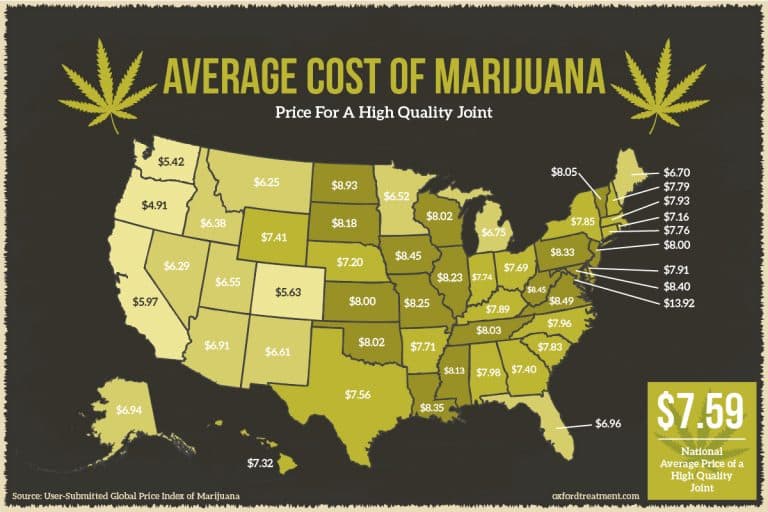
The 6% sales tax proposed by Legal Missouri will go to the Veterans, Health and Community Reinvestment Fund and be allocated to:
- Funding the operations of the department
- Carrying out the responsibilities in the expungement of criminal history records
- Remaining funds will be split equally to:
- Missouri Veterans Commission
- Fund agencies and nonprofit organizations to provide low-barrier, evidence based, drug addiction treatment
- Public defender system
“The cannabis industry is really geared towards helping those kind of programs out,” Ruby said. “So by doing that, we can actually help control where that money goes.”
If passed, Legal Missouri estimates that after a couple of years Missouri’s marijuana sales will be around $1 billion. That would generate about $40 million in state tax revenue and another $12 million in local tax revenues.
Other, anti-drug, opponents to Legal Missouri have filed a lawsuit against the constitutional amendment. According to an article in the Missouri Independent, the plaintiff alleges the ballot initiative isn’t a single-subject initiative and is therefore unconstitutional.
Supporters of the Legal Missouri ballot initiative don’t seem too worried by the lawsuit.
Until November, those against Legal Missouri will continue to post and shout their beliefs.
“This is going to be a group effort,” Thompson encouraged her followers on Facebook Live. “One person has a lot more reach than y’all think.”
Those supporting the ballot initiative will do the same, and both will encourage folks to turn out to the polls on Nov. 8.
“It is a way to fundamentally expand personal freedom here in the state of Missouri, and give a lot of people who have these minor marijuana offenses, give them their lives back and prevent them from having to continue to suffer consequences for something that didn’t hurt anybody,” Payne said.
This article has been edited from a previous version to correct a spelling error.
Cami Koons covers rural affairs for Kansas City PBS in cooperation with Report for America. The work of our Report for America corps members is made possible, in part, through the generous support of the Ewing Marion Kauffman Foundation. Cody Boston is a video producer for Kansas City PBS. This story is part of ongoing midterm election coverage by members of the KC Media Collective.





